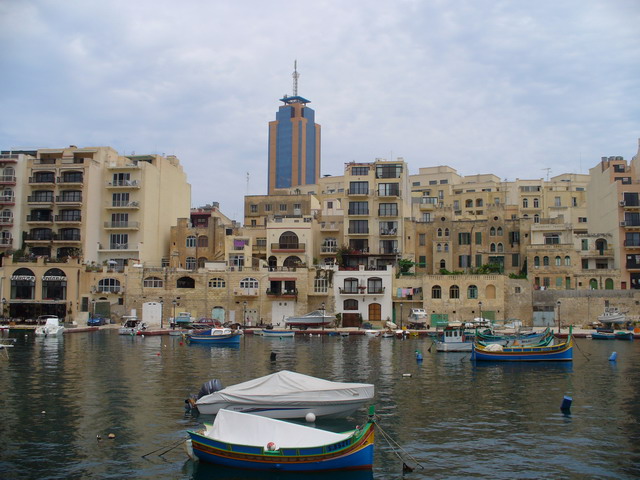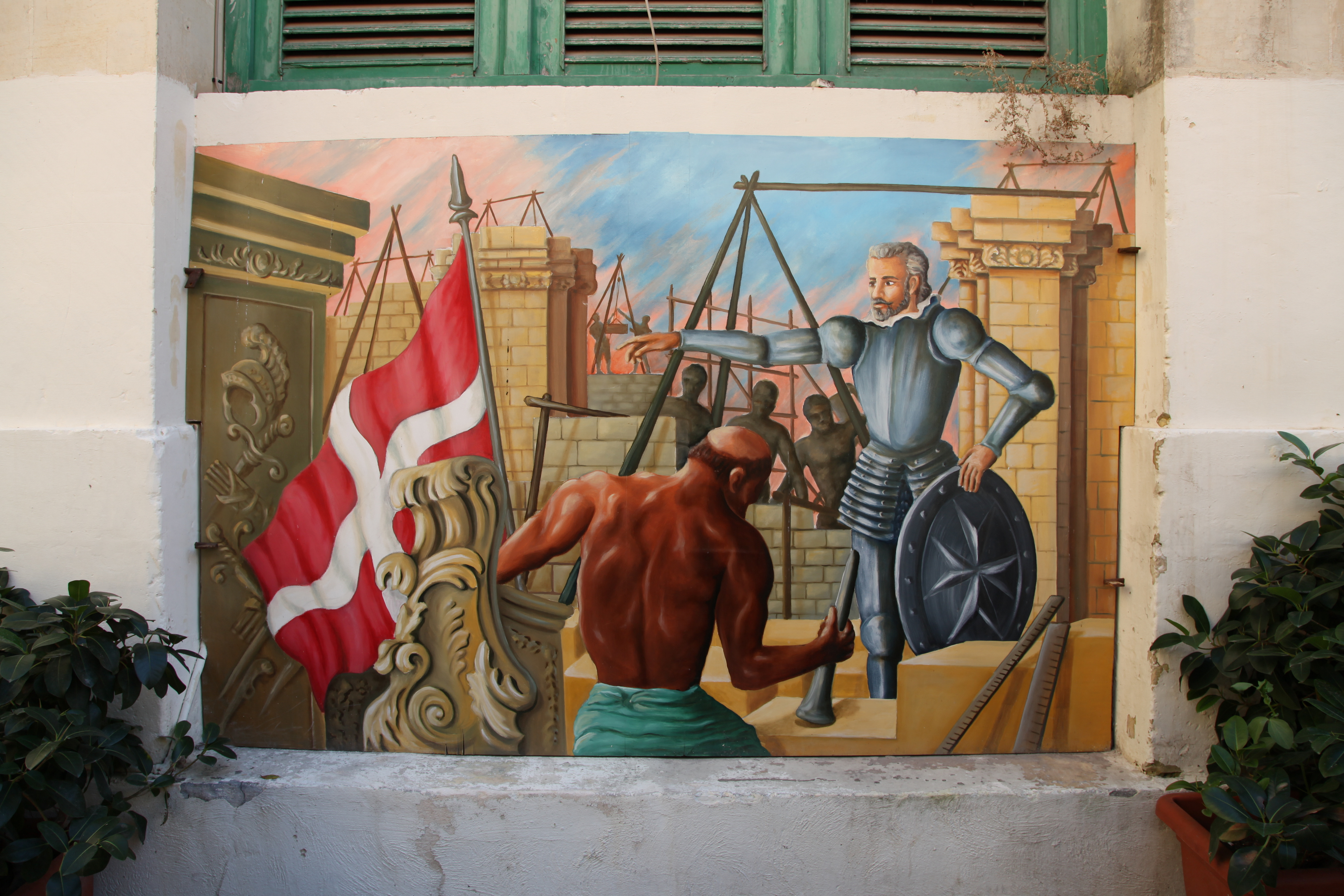|
Conrad Borg Manché
Conrad Borg Manché is a Maltese politician, serving as the Mayor of Gżira, Malta, on behalf of the Labour Party. He was brought up in Gzira. As a political activist, he gained fame in Malta for re-opening access to the coast of Manoel Island for the public in September, 2016, after it was closed for over 15 years due to the developments by MIDI. The popular support gained by Borg Manché led to the first environmental guardianship agreement of its kind to be signed in Malta, safeguarding the future of Manoel Island and its surrounding environment of Gżira, Sliema and Valletta. As a result of his actions the Manoel Island Foundation was founded to serve as the guardian of the Manoel Island Project. The Guardianship agreement ensures unencumbered public access to the Manoel Island foreshore, Fort Manoel, to be utilised for cultural, community and commercial uses enjoyed by the general public, secures protected swimming zones, building heights limited to four floors and a ne ... [...More Info...] [...Related Items...] OR: [Wikipedia] [Google] [Baidu] |
Gżira
Gżira ( mt, Il-Gżira) is a town in the Central Region of Malta. It is located between Msida and Sliema, also bordering on Ta' Xbiex. It has a population of 8,029 as of March 2014. The word ''Gżira'' means "island" in Maltese, and the town is named after Manoel Island which lies just adjacent to the town. The seafront of Gżira has views of the walled city of Valletta, which are illuminated at night, forming a backdrop to Manoel Island, the yacht marina and a seafront public garden. Kappara is located close to Gżira. The Orpheum Theatre is located in Gżira. Town history In the mid-19th century a villa was built in Gżira by Chevalier Jacob Tagliaferro. Slowly Gżira started developing into a working-class suburb of Sliema. Until the 1970s, Gżira had many bars, particularly the Snake Pit, Britannia and the Granada along and in proximity of the Strand, which economic activity ended when the British Service left Malta on 31 March 1979. Tables have turned and the re ... [...More Info...] [...Related Items...] OR: [Wikipedia] [Google] [Baidu] |
St Julian's, Malta
Saint Julian's ( mt, San Ġiljan) is a town in the Central Region of Malta. As of 2020, its registered number of inhabitants stands at 13,792. It is situated along the coast, north of the country's capital, Valletta. It is known for tourism-oriented businesses, such as hotels, restaurants and nightclubs which are centred mainly in an area known as Paceville. Etymology, feast and traditions The town is named after its patron saint; Saint Julian who is widely known as Julian the Hospitaller and Julian the Poor whereby he is the patron saint of hunters. Before the reform to the Calendar of Saints, the memorial to St Julian was on 27 January. Nowadays, it is celebrated on 12 February, although in Malta an additional feast, in the spirit of the many summer feasts around the island, is celebrated on the last Sunday of August. A very particular competition connected with the town's feast is known as ''ġostra''. This traditional competitive feat involves participants climbing and ... [...More Info...] [...Related Items...] OR: [Wikipedia] [Google] [Baidu] |
University Of Malta
The University of Malta (, UM, formerly UOM) is a higher education institution in Malta. It offers undergraduate bachelor's degrees, postgraduate master's degrees and postgraduate doctorates. It is a member of the European University Association, the European Access Network, Association of Commonwealth Universities, the Utrecht Network, the Santander Network, the Compostela Group, the European Association for University Lifelong Learning (EUCEN) and the International Student Exchange Programme (ISEP). In post-nominals the university's name is abbreviated as ''Melit''; a shortened form of ''Melita'' (a Latinised form of the Greek ''Μελίτη''). History The precursor to the University of Malta was the '' Collegium Melitense'', a Jesuit college which was set up on 12 November 1592. This was originally located in an old house in Valletta, but a purpose-built college was constructed between 1595 and 1597. This building is now known as the Old University Building or the Va ... [...More Info...] [...Related Items...] OR: [Wikipedia] [Google] [Baidu] |
Malta
Malta ( , , ), officially the Republic of Malta ( mt, Repubblika ta' Malta ), is an island country in the Mediterranean Sea. It consists of an archipelago, between Italy and Libya, and is often considered a part of Southern Europe. It lies south of Sicily (Italy), east of Tunisia, and north of Libya. The official languages are Maltese and English, and 66% of the current Maltese population is at least conversational in the Italian language. Malta has been inhabited since approximately 5900 BC. Its location in the centre of the Mediterranean has historically given it great strategic importance as a naval base, with a succession of powers having contested and ruled the islands, including the Phoenicians and Carthaginians, Romans, Greeks, Arabs, Normans, Aragonese, Knights of St. John, French, and British, amongst others. With a population of about 516,000 over an area of , Malta is the world's tenth-smallest country in area and fourth most densely populated sovereign cou ... [...More Info...] [...Related Items...] OR: [Wikipedia] [Google] [Baidu] |
Labour Party (Malta)
The Labour Party ( mt, Partit Laburista, PL), formerly known as the Malta Labour Party ( mt, Partit tal-Ħaddiema, MLP), is one of the two major political parties in Malta, along with the Nationalist Party. It sits on the centre-left of the political spectrum. The party was founded in 1920 as the Chamber of Labour by a small group of trade unionists. Its prominent member Paul Boffa served as the first Labour prime minister between 1947 and 1950. Ideologically, the party was orientated towards democratic socialism and other left-wing stances until the early 1990s, when it followed the lead of like-minded Western social-democratic parties like Britain's New Labour. The party still claims to be democratic-socialist in their party programme. Under the rule of Joseph Muscat, the party shifted to a more centrist position, adopting Third Way policies. A formerly Eurosceptic party, it claims to hold pro-European stances and is a member of the Party of European Socialists, and w ... [...More Info...] [...Related Items...] OR: [Wikipedia] [Google] [Baidu] |
Manoel Island
Manoel Island ( mt, Il-Gżira Manoel), formerly known as Bishop's Island ( mt, Il-Gżira tal-Isqof, it, Isola del Vescovo) or the ''Isolotto'', is a small island which forms part of the municipality of Gżira in Marsamxett Harbour, Malta. It is named after the Portuguese Grand Master António Manoel de Vilhena, who built a fort on the island in the 1720s. Geography Manoel Island is a low, rather flat hill, shaped roughly like a leaf. It is located in the middle of Marsamxett Harbour, with Lazzaretto Creek to its south and Sliema Creek to its north. The island is connected to mainland Malta by a bridge. The whole island can be viewed from the bastions of the capital Valletta. History In 1570, the island was acquired by the Cathedral Chapter of Mdina and it became the property of the Bishop of Malta. It was therefore called ''l'Isola del Vescovo'' or il-''Gżira tal-Isqof'' in Maltese (the Bishop's Island). In 1592, a quarantine hospital known as the Lazzaretto was built duri ... [...More Info...] [...Related Items...] OR: [Wikipedia] [Google] [Baidu] |
Sliema
Sliema ( mt, Tas-Sliema ) is a town located on the northeast coast of Malta in the Districts of Malta#Northern Harbour District, Northern Harbour District. It is a major residential and commercial area and a centre for shopping, bars, dining, and café life. It is also the most densely populated town on the island. Lining the coastline is a promenade known as the Sliema Front that has become the ideal spot for joggers and walkers as well as a prolific meeting place for locals during the summer season. Romantic moon strolls, barbeques and open air restaurants and cafes have made Sliema the hub of social nightlife. Sliema is also known for its numerous rocky beaches, water sports and hotels. Sliema, which means 'peace, comfort', was once a quiet fishing village on the peninsula across Marsamxett Harbour from Valletta and has views of the capital city. The population began to grow in 1853 and the town was declared a parish in 1878. Now Sliema and the coastline up to neighbouring S ... [...More Info...] [...Related Items...] OR: [Wikipedia] [Google] [Baidu] |
Valletta
Valletta (, mt, il-Belt Valletta, ) is an Local councils of Malta, administrative unit and capital city, capital of Malta. Located on the Malta (island), main island, between Marsamxett Harbour to the west and the Grand Harbour to the east, its population within administrative limits in 2014 was 6,444. According to the data from 2020 by Eurostat, the Functional Urban Area and metropolitan region covered the whole island and has a population of 480,134. Valletta is the southernmost capital of Europe, and at just , it is the European Union's smallest capital city. Valletta's 16th-century buildings were constructed by the Hospitaller Malta, Knights Hospitaller. The city was named after Jean Parisot de Valette, who succeeded in defending the island from an Ottoman invasion during the Great Siege of Malta. The city is Baroque architecture, Baroque in character, with elements of Mannerist architecture#Mannerist architecture, Mannerist, Neoclassical architecture, Neo-Classical and Mo ... [...More Info...] [...Related Items...] OR: [Wikipedia] [Google] [Baidu] |
Joseph Muscat
Joseph Muscat (born 22 January 1974) is a Maltese politician who served as the prime minister of Malta from 2013 to 2020, and as the leader of the Labour Party from June 2008 to January 2020. Muscat was re-elected as prime minister in the elections of 3 June 2017 (55.04% after 54.83% in 2013). Previously he was a member of the European Parliament (MEP) from 2004 to 2008. He was the leader of the opposition from October 2008 to March 2013. Muscat identifies as a progressive and liberal politician, with pro-business leanings, and has been associated with both economically liberal and socially liberal policies. Muscat succeeded Alfred Sant as party leader in 2008. He rebranded the Labour Party, which embraced an increasingly socially liberal and centrist position. The 2013 general election saw Muscat becoming Prime Minister in March 2013. His premiership was marked for pulling together a national consensus for economic growth, based on a restructured Maltese economy. His ad ... [...More Info...] [...Related Items...] OR: [Wikipedia] [Google] [Baidu] |
Living People
Related categories * :Year of birth missing (living people) / :Year of birth unknown * :Date of birth missing (living people) / :Date of birth unknown * :Place of birth missing (living people) / :Place of birth unknown * :Year of death missing / :Year of death unknown * :Date of death missing / :Date of death unknown * :Place of death missing / :Place of death unknown * :Missing middle or first names See also * :Dead people * :Template:L, which generates this category or death years, and birth year and sort keys. : {{DEFAULTSORT:Living people 21st-century people People by status ... [...More Info...] [...Related Items...] OR: [Wikipedia] [Google] [Baidu] |
University Of Malta Alumni
A university () is an institution of higher (or tertiary) education and research which awards academic degrees in several academic disciplines. Universities typically offer both undergraduate and postgraduate programs. In the United States, the designation is reserved for colleges that have a graduate school. The word ''university'' is derived from the Latin ''universitas magistrorum et scholarium'', which roughly means "community of teachers and scholars". The first universities were created in Europe by Catholic Church monks. The University of Bologna (''Università di Bologna''), founded in 1088, is the first university in the sense of: *Being a high degree-awarding institute. *Having independence from the ecclesiastic schools, although conducted by both clergy and non-clergy. *Using the word ''universitas'' (which was coined at its foundation). *Issuing secular and non-secular degrees: grammar, rhetoric, logic, theology, canon law, notarial law.Hunt Janin: "The university ... [...More Info...] [...Related Items...] OR: [Wikipedia] [Google] [Baidu] |







